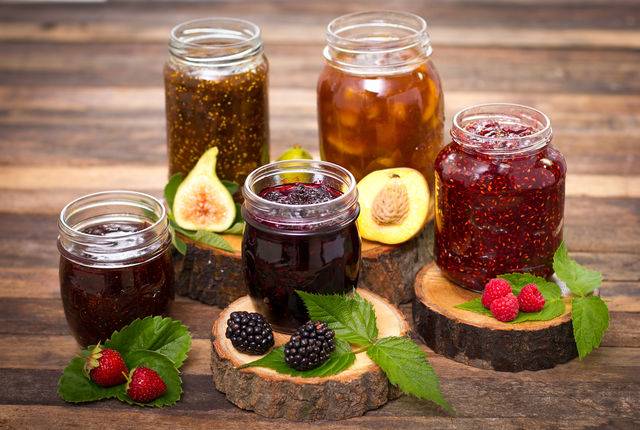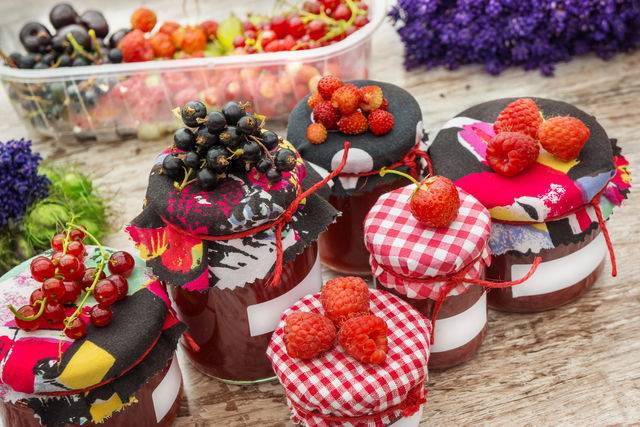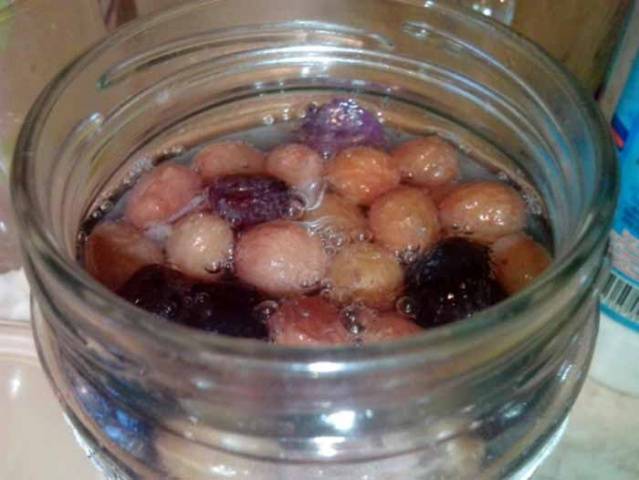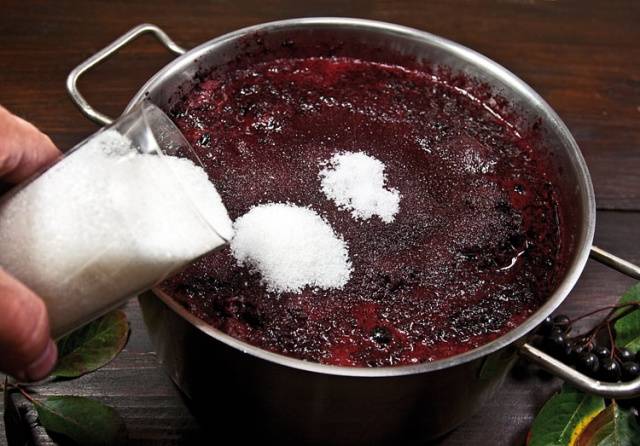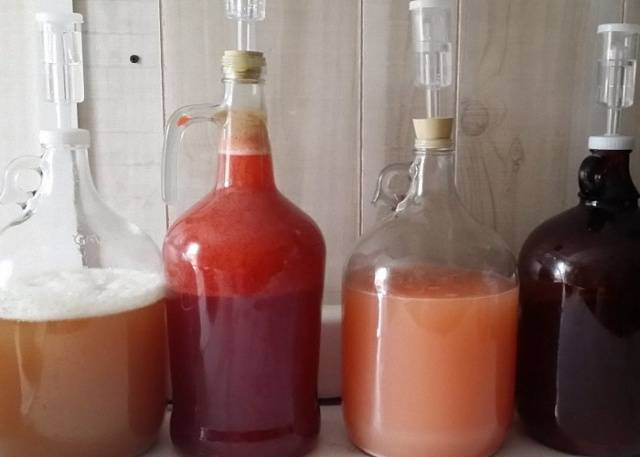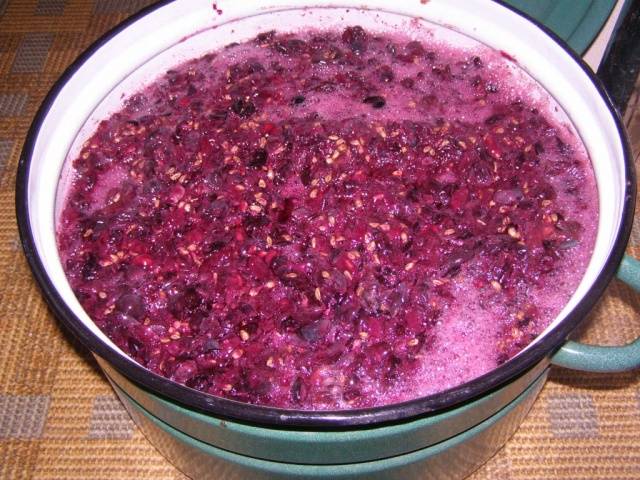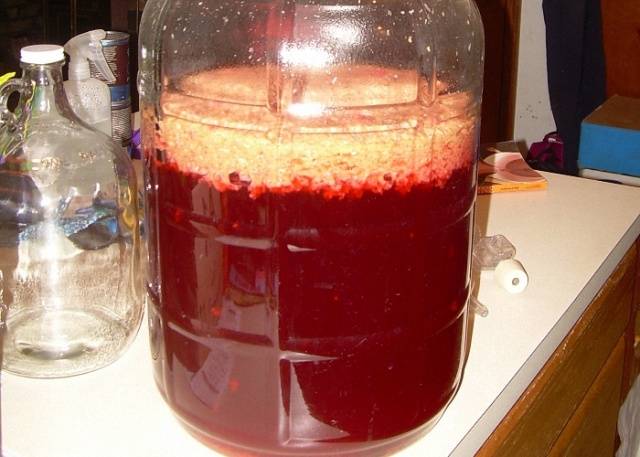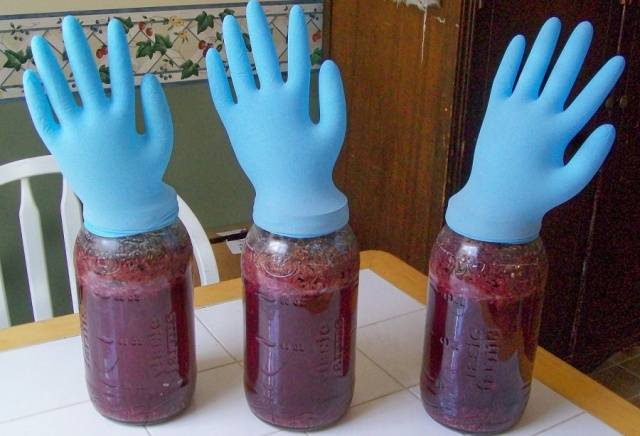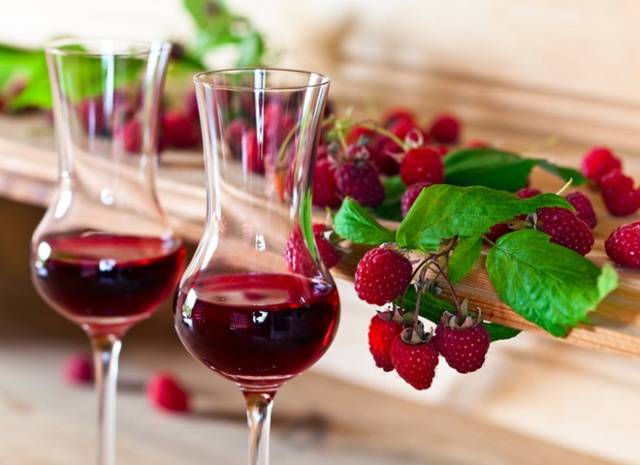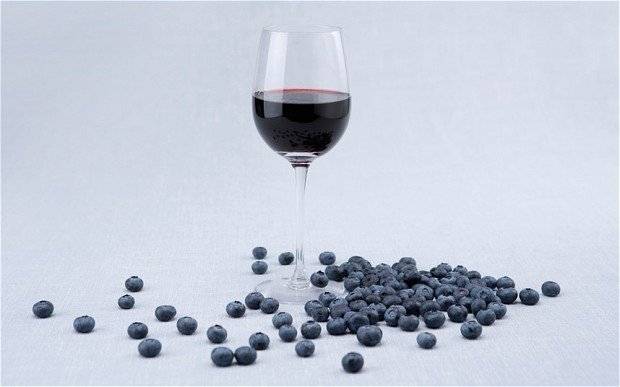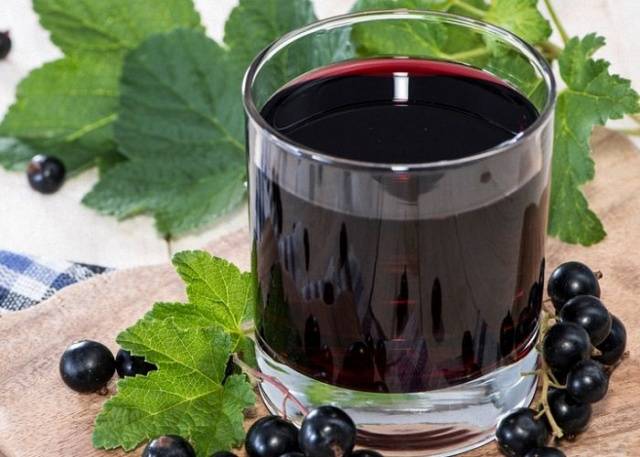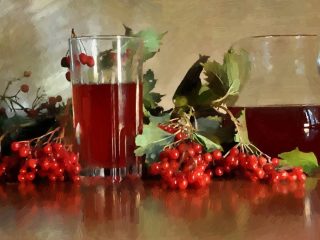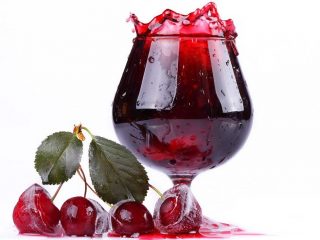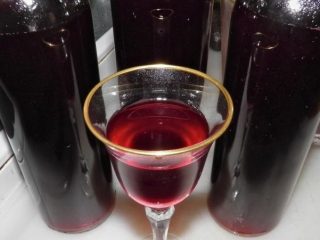Content
Every year, housewives prepare a bunch of supplies for the winter - they canning, pickling and fermenting vegetables, making jams and jams. Often, even a large family does not have time to eat them in a season, so large and small cans stand for years in basements, cellars or closets. But there comes a time when the container runs out, there is little space, or it just starts to annoy the sight of a battery of supplies that have not been used for years. Then uneaten cucumbers and salads fly into the bin. Sweet supplies turn into mash, then become moonshine or fly to the same trash heap.
In the meantime, you can make homemade wine from jam. Of course, this drink will not be elite, but if everything is done correctly, it will turn out to be aromatic and tasty. It is remarkable that not only old jam is suitable for the preparation of alcohol, it is made from a candied or even sour product.
Raw materials for wine from jam and containers
To make wine from jam at home, you need to prepare enamel dishes for fermenting the wort, glass cylinders with a capacity of 3 or 5 liters, a water seal or medical gloves, gauze, and actually the sweet supplies themselves, intended for processing.
The containers for the manufacture of alcohol must first be washed with soda, and the glass jars must be additionally sterilized. Homemade wine from old jam can only be made if it is of good quality, candied or sour. Even the slightest traces of mold on the surface completely exclude the possibility of further processing. No matter how you collect the white bloom with a spoon, it will not work to make wine from jam infected with pathogenic microorganisms. Doesn't help even if you throw out half the can.
Sourdough for wine
To make homemade jam wine, you may need wine yeast. They are not easy to get, especially if you make alcoholic beverages occasionally, so it is easier to use sourdough. You can add unwashed rice or raisins to sour or sugared jams to enhance fermentation.
Better yet, prepare the sourdough in one of the ways given in our article. Grape wine at home: a simple recipe.
You cannot use baker's yeast in winemaking. Even if you do not get mash instead of a noble drink, then its smell will be clearly perceptible. No amount of exposure or filtration will help get rid of the moonshine smell.
Do I need to add sugar to wine from jam
Although the process of making wine from candied jam is very similar to making a drink from fresh fruits or berries, you need to remember that there are still differences. This mainly concerns the fermentation of the wort.
When homemade wine is made from fermented jam, the sugar contained therein breaks down into alcohol and carbon dioxide. The strength of the wine directly depends on its quantity. But if the level of alcohol in the wort reaches 20%, fermentation will stop, and not because it ended naturally, but because of the death of beneficial microorganisms that provide fermentation processes.
Therefore, before making homemade wine, you need to think carefully about the recipe for its preparation. If you add little water, you don't need to add sugar. When the ratio of liquid to jam is 4: 1 or 5: 1, the wort is still not sweetened in the initial stages if it ferments well. Sugar can be added in portions after placing the wine under the water seal.
Jam Wine Recipes
There are many recipes for making wine, including those made from fermented or candied jam.
Basic recipe
Using this example, we will describe in detail the recipe for homemade wine made from jam, indicate possible difficulties and ways to eliminate them.
Ingredients
Required:
- jam - 1 l;
- water - 1.5 l;
- raisins (sourdough) - 100 g.
You may also need some sugar. How much and in what cases it should be added, we will describe below.
Remember, any wine recipe assumes that the wort contains no more than 20% sugar. Otherwise, it simply won't wander. For wine made from fermented jam, at home, the above amount of water may be sufficient. Sugared is diluted with a large volume of liquid.
Cooking method
Transfer the jam to a clean container, pour in warm boiled water. Add unwashed raisins and mix well. The fermentation container should be about 3/4 full.
Cover the dishes with clean gauze, put in a warm place (18-25 degrees). After 15-20 hours, the pulp from the sour or sugar-prone jam will begin to ferment and float up. Stir it several times a day with a wooden spoon or spatula.
You may find that the wort has not fermented well and the room temperature has not dropped below 18 degrees. Try liquid:
- if it becomes sour, add 50 g of sugar for each liter;
- if the wort, on the contrary, is too sweet, add a glass of water to the same volume.
After 5-6 days, strain the wort through folded gauze, pour into clean glass cans, filling them 3/4 full, install a water seal or pull on a rubber glove with one pierced finger.
Remove the cans to a warm place to continue fermentation. The process usually takes 30 to 60 days.
When the odor trap stops bubbling or the glove falls off, try the wine. If it seems to you that it is not good or too sour, you can add sugar at the rate of 50 g per liter.
If fermentation has stopped, and the taste of the drink suits you, bottle it so as not to disturb the sediment and seal it.
Move the wine to a cool room with a temperature of 10-12 degrees for 2-3 months. Pepper it gently every 20 days. Then bottle it again, seal it and store it.
Raspberry or blueberry
Fermented raspberry jam can be used to make a wonderful aromatic wine. It will be a great addition to sweet dishes, and by itself it will decorate any table.
Ingredients
You will need:
- raspberry jam - 1 l;
- water - 2.5 l;
- raisins - 120 g.
Cooking method
Dilute raspberry jam with warm water, add raisins.
Place in a dark, warm place to pre-ferment for 5 days. Don't forget to stir.
If at a temperature of at least 18 degrees in a day fermentation is weak or does not occur at all, try the liquid. Add sugar or water if necessary as instructed in the basic recipe.
Strain the wine through folded cheesecloth and pour into clean glass jars, 3/4 full. Install a water seal.
When fermentation stops, remove the wine from the lees, then bottle and take to a cool place for quiet fermentation.
After 2 months, the drink can be drunk. It will be light and fragrant.
This is exactly how you can make wine from blueberry jam.
Currant
If you want to make wine quickly, make it with currant jam.
Ingredients
You will need:
- currant jam - 1 l;
- water - 2 l;
- wine yeast - 20 g;
- rice - 200 g.
Cooking method
Dissolve the yeast with warm water and let stand for as long as it says on the package.
Pour unwashed rice and jam into a five-liter container, add liquid, stir well. Add yeast, cover with gauze, put in a warm dark place for 5 days.
Wine made from jam with yeast and rice should ferment very well, if this does not happen, add water. Remember to stir the wort with a wooden spatula.
Strain the wine, pour into glass bottles, filling no more than 3/4 of the volume. Place a water seal or wear a medical glove, piercing one finger. Let it wander in a dark, warm place for 20 days.
When the glove falls off, drain the homemade currant jam wine from the sediment, bottle it.
This is a quick and easy recipe. You can let the wine brew for 2-3 months, or you can drink it right away.
Cherry
Cherry jam wine, perhaps, the most delicious and beautiful. It contains natural sourness and is ruby colored.
Ingredients
You will need:
- cherry jam - 1 l;
- water - 1.5 l;
- raisins - 170 g.
Cooking method
Mix all the ingredients in a 3 liter jar. Cover with cheesecloth and leave in a warm place to ferment. Stir with a wooden spatula several times a day.
If wine made from cherry jam ferments poorly, try the liquid and add water or sugar.
After 5 days, strain the wort into a clean jar, put on a punctured glove. Leave to ferment for 40 days.
When the glove falls off, remove the wine from the sediment, pour, seal the bottles, put horizontally in a cool place to ripen for 2 months.
Conclusion
As you can see, the missing jam can be used not only for making mash. And even though it is impossible to make an elite wine out of it, the drink will turn out to be tasty and aromatic.
